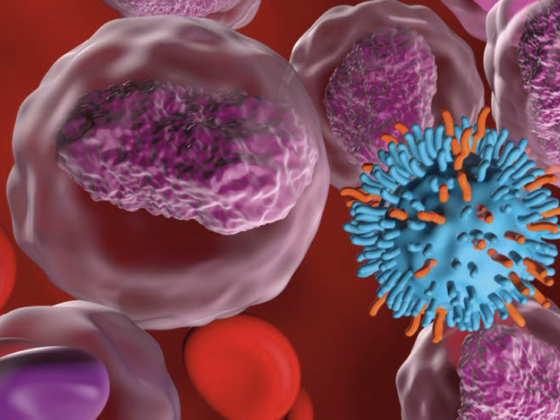Dr Isabelle Meurgey and Dr Alain Butnaru
The work done by Svante Pääbo, which earned him the Nobel Prize for Medicine in 2022, laid the foundations for a new discipline: paleogenetics. It involves studying ancient human DNA in order to understand the evolution of our modern genome.
Svante Pääbo found evidence of interbreeding between the different ancient human blood lines. Europeans are the fruit of a genetic blend of the first hunter-gatherers who came from Africa and populated Europe, farmers who migrated from southern Turkey, and finally the Yamnaya, nomadic shepherds who came from the Eurasian Steppe 4,000 to 5,000 years ago. Together, they make up our modern-day genome.

Our genome is our genetic heritage. It is made up of units of DNA, called genes. Our genome contains around 25,000 genes. A number of biological functions rely on our genes, and the genetic approach aims to identify one or several variations in the sequence of a gene – mutations – that might cause a genetic disease to develop. Thanks to our research into Personalised Preventative Medicine, we can now carry out genomic testing.
The aim is not to identify pathologies but rather to reveal any changes in the genes, which might not be pathological in themselves but which could increase the risk of developing an illness in the future. We can then adjust the patient’s diet and lifestyle accordingly, and maybe even prescribe certain treatments, in a practical application of epigenetics.
In France, the regulations covering these tests are very strict. Patients must give their informed consent before undergoing any genomic sequencing procedures, and must have been informed of the risks, the benefits and the potential scope of the results. Confidentiality and data protection are backed up by the General Data Protection Regulation (GDPR). There are now a number of genomic tests available, but they can only be selected once a Functional and Anti-Aging Medicine file has been drawn up (individual and family medical history, symptoms, clinical signs, diet) and a full set of biological tests has been carried out.
The genomic tests we most frequently study in our practice are:
APOE
APOE polymorphisms are considered to be important genetic markers for cholesterol levels, and therefore suggest a genetic predisposition to cardiovascular disease. What is more, if E4 allele is found, this may denote a genetic predisposition to Alzheimer’s disease.
DIO2
Type II iodothyronine deiodinase enzyme (DIO2) catalyses the conversion of thyroxin (T4) into active thyroid hormone (T3). Polymorphism within the DIO2 gene can reduce the enzyme’s activity.
FUT2
Polymorphism within the FUT2 gene affects a person’s resistance to viral infections in the gastrointestinal tract and shows a predisposition to disrupted intestinal flora (dysbiosis). Other polymorphisms present an increased risk of lower vitamin B12 levels.
MTHFR
Methylenetetrahydrofolate reductase enzyme (MTHFR) plays an important role in regulating folate metabolism. Polymorphisms can trigger hyperhomocysteinemia and are therefore a risk factor for thrombosis and atherosclerosis.
AMY1A1
The alpha-amylase 1 gene (AMY1A) programmes the salivary enzyme amylase, which is responsible for digesting starchy foods. More specifically, AMY1A breaks starch down into simpler glucose molecules, thus acting as a catalyst for the first stage of dietary starch digestion.
MCM6 (LCT)
If a person is lactose or milk sugar intolerant, they are unable to digest the lactose contained in their food, or at least not fully, due to an absence or deficient production of the digestive enzyme lactase. This can make them milk and dairy intolerant.
The aim of Functional and Anti-Aging Medicine is to understand the body’s intricate workings in the most comprehensive way possible. By learning more about the genotype, we are able to develop personalised prevention strategies and prescribe targeted treatments.
Dr Isabelle Meurgey

Doctor of anti-aging and cosmetic medicine. Graduate of the Rouen medical faculty. Has specialised in preventative and performance medicine since 1997. Permanent member of the French Society of Aesthetic Medicine.
More informations: docteurisabellemeurgey.com
Dr Alain Butnaru

Graduate of the Paris Medical Faculty. Aesthetic and Anti-Aging Medicine since 1985. Permanent member of the French Society of Aesthetic Medicine. Degrees in Morphological and Anti-Aging Medicine.
More informations: docteuralainbutnaru.com













